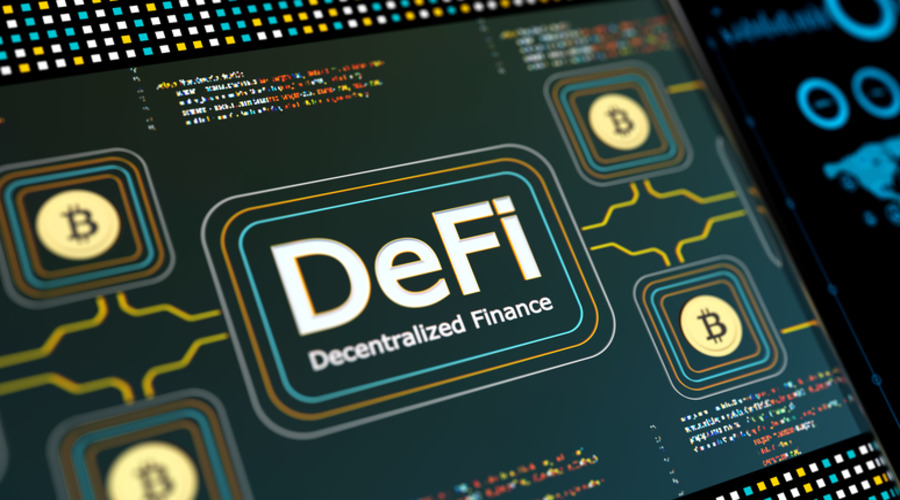In recent years, decentralized finance (DeFi) has emerged as a disruptive force in the financial industry. DeFi platforms offer innovative solutions for lending, borrowing, and trading digital assets, providing users with increased financial autonomy. However, as the DeFi ecosystem continues to expand, regulatory considerations become increasingly important, particularly when it comes to DeFi insurance. This article explores the regulatory landscape surrounding DeFi insurance and highlights key considerations for both users and providers.
Understanding DeFi Insurance
What is DeFi Insurance?
DeFi insurance refers to the provision of insurance coverage for risks associated with decentralized finance activities. It aims to protect users against potential financial losses resulting from smart contract vulnerabilities, hacks, or other unforeseen events. DeFi insurance can provide users with peace of mind and encourage broader participation in the DeFi ecosystem.
DeFi Insurance refers to insurance services offered within the decentralized finance (DeFi) ecosystem. It aims to provide coverage and protection against risks specific to DeFi protocols and activities. DeFi insurance utilizes blockchain technology and smart contracts to automate policy issuance, claims processing, and payout distribution. It offers users the opportunity to mitigate potential financial losses resulting from hacks, smart contract vulnerabilities, or other unforeseen events. DeFi insurance platforms provide a decentralized and transparent approach to insurance, enabling users to access coverage without the need for traditional intermediaries. By leveraging the benefits of blockchain technology, DeFi insurance enhances trust, security, and resilience within the evolving landscape of decentralized finance.
The Importance of DeFi Insurance
As the DeFi space evolves, it becomes crucial to address potential risks and uncertainties. DeFi insurance acts as a safety net, offering protection against the inherent vulnerabilities in decentralized systems. By mitigating risk, DeFi insurance fosters trust and confidence among users, attracting more participants to the DeFi ecosystem.
DeFi Insurance plays a crucial role in the development and adoption of decentralized finance. It addresses the unique risks and challenges faced by participants in the DeFi ecosystem, enhancing its overall stability and resilience. Here are key reasons highlighting the importance of DeFi Insurance:
- Risk Mitigation: DeFi protocols are not immune to vulnerabilities and hacks. DeFi insurance provides a safety net, protecting users and investors against potential financial losses resulting from smart contract exploits, security breaches, or unforeseen events.
- User Confidence: By offering insurance coverage, DeFi platforms instill confidence in users, attracting more participants to engage in DeFi activities. The availability of insurance protection reduces the fear of potential risks and encourages broader participation in the ecosystem.
- Smart Contract Security: DeFi insurance incentivizes the auditing and security assessment of smart contracts. It promotes best practices and encourages developers to prioritize security measures, thereby reducing the occurrence of vulnerabilities and improving the overall robustness of DeFi protocols.
- Market Maturity: As DeFi insurance develops, it contributes to the overall maturity of the DeFi market. With insurance coverage available, traditional financial institutions and institutional investors are more likely to enter the space, leading to increased liquidity and broader adoption of DeFi solutions.
- Financial Resilience: DeFi insurance helps in the recovery and continuity of DeFi protocols and projects after a security incident or loss event. By providing a mechanism for compensation and recovery, it contributes to the overall sustainability and long-term viability of the DeFi ecosystem.
In summary, DeFi insurance brings a vital layer of protection, risk mitigation, and confidence to the decentralized finance landscape. It enhances the overall resilience, security, and trust within the ecosystem, supporting its continued growth and mainstream adoption.
Regulatory Challenges in DeFi Insurance
- Absence of Clear Frameworks: DeFi insurance operates in a relatively unregulated space, leading to uncertainty regarding applicable laws and regulations.
- Jurisdictional Complexity: Determining the jurisdictional scope of DeFi insurance platforms can be challenging due to their decentralized nature, making regulatory oversight difficult.
- Compliance Requirements: DeFi insurance providers need to navigate compliance obligations to ensure adherence to existing financial regulations and consumer protection standards.
- Smart Contract Audits: Ensuring the security and reliability of smart contracts used in DeFi insurance requires comprehensive audits, which can be a regulatory challenge.
- Consumer Protection: Striking a balance between user autonomy and regulatory oversight to protect consumers’ interests presents challenges unique to the decentralized nature of DeFi insurance.
- Capital Adequacy: Regulators may require DeFi insurance providers to maintain sufficient capital reserves to ensure their financial stability and ability to meet policyholder claims.
- Transparency and Disclosure: DeFi insurance platforms need to find ways to provide transparent and comprehensive disclosures to users regarding coverage, terms, and potential risks.
- Licensing and Registration: Determining the appropriate licenses and registrations for DeFi insurance providers can be complex, as existing regulatory frameworks may not fully encompass this emerging sector.
- Data Privacy and Security: Handling personal and financial data in DeFi insurance raises concerns about privacy and data protection, requiring compliance with relevant regulations.
- Regulatory Uncertainty: Rapidly evolving regulatory landscapes and potential changes to laws can pose challenges for DeFi insurance providers trying to maintain compliance.
Navigating these regulatory challenges is essential for the successful development and operation of DeFi insurance platforms, ensuring the protection of users and fostering trust in the ecosystem.

Regulatory Considerations for Users
- Risk Assessment: Users should conduct thorough risk assessments before engaging with DeFi insurance platforms, considering factors such as platform reputation, track record, and security audits of underlying smart contracts.
- Due Diligence: Performing due diligence on DeFi insurance providers helps users evaluate their credibility, reliability, and adherence to regulatory requirements.
- Know Your Customer (KYC): Users may need to comply with KYC procedures, providing necessary information to meet regulatory requirements and prevent fraudulent activities.
- Terms and Conditions: Users should carefully review and understand the terms and conditions of the insurance coverage offered by DeFi platforms, including coverage limits, claim procedures, and potential exclusions.
- Smart Contract Audits: Evaluating the results of smart contract audits conducted by reputable third-party firms can help users assess the security and reliability of the DeFi insurance platform.
- Compliance with Regulations: Users should consider whether the DeFi insurance platform complies with applicable regulations to ensure their own protection and avoid potential legal issues.
- Dispute Resolution Mechanisms: Understanding the dispute resolution mechanisms provided by the DeFi insurance platform can help users address any issues or concerns that may arise during the insurance process.
- Policyholder Rights: Users should be aware of their rights as policyholders, including the process for filing claims, accessing policy documentation, and seeking redress in case of disputes.
- Transparency and Disclosure: Users should look for platforms that provide transparent information about the insurance product, including risks, fees, and potential conflicts of interest.
- Community Feedback and Reviews: Seeking feedback and reviews from other users within the DeFi community can provide valuable insights into the reputation and reliability of the insurance platform.
Considering these regulatory considerations empowers users to make informed decisions when participating in DeFi insurance, ensuring their interests are protected and minimizing potential risks.
Regulatory Considerations for Providers
Licensing and Registration
DeFi insurance providers must navigate the complex landscape of licensing and registration requirements. Depending on the jurisdiction, providers may need to obtain specific licenses or registrations to operate legally. Complying with regulatory obligations ensures the stability and legitimacy of the DeFi insurance market.
Capital Requirements
Regulators often impose capital requirements on insurance providers to ensure their financial stability and ability to meet policyholder claims. DeFi insurance providers need to assess and manage their capital adequacy to demonstrate solvency and protect policyholders’ interests.
Transparency and Disclosure
Transparency and disclosure play a vital role in regulatory compliance for DeFi insurance providers. Clear and comprehensive communication of terms, conditions, coverage, and potential risks fosters trust and enables users to make informed decisions. Providers should ensure transparency in their operations to comply with regulatory expectations.
Compliance Best Practices for DeFi Insurance
Establishing Internal Compliance Procedures
DeFi insurance providers should establish robust internal compliance procedures. This includes implementing systems for risk management, due diligence, and monitoring of regulatory changes. By prioritizing compliance, providers can demonstrate their commitment to maintaining a secure and trustworthy DeFi insurance environment.
Collaboration with Regulators
Collaboration with regulators is crucial for DeFi insurance providers to stay ahead of regulatory developments. Engaging in dialogue, participating in industry associations, and sharing best practices can help shape regulatory frameworks that balance innovation and consumer protection. Building constructive relationships with regulators benefits the entire DeFi insurance ecosystem.
Staying Up-to-Date with Regulatory Changes
The regulatory landscape surrounding DeFi insurance is continuously evolving. Providers must stay vigilant and adapt to regulatory changes. By closely monitoring updates, engaging with legal counsel, and actively participating in industry discussions, providers can proactively address compliance requirements and ensure their long-term sustainability.
Conclusion
DeFi insurance holds significant promise in mitigating risks and bolstering trust within the decentralized finance ecosystem. However, navigating the regulatory landscape is essential for the sustainable growth of DeFi insurance. Both users and providers should consider the regulatory considerations outlined in this article to ensure compliance, protect against potential risks, and foster the continued development of DeFi insurance solutions.
FAQs
- Is DeFi insurance regulated? DeFi insurance operates in a relatively unregulated space. However, regulatory developments are underway to address the challenges and provide clarity to the industry.
- What are the risks associated with DeFi insurance? Risks in DeFi insurance include smart contract vulnerabilities, regulatory uncertainties, and potential hacking or security breaches.
- Are KYC procedures necessary for DeFi insurance? KYC procedures may be required by regulators to prevent fraudulent activities and ensure compliance with anti-money laundering regulations.
- How can users assess the reliability of a DeFi insurance provider? Users can assess a provider’s reliability by conducting due diligence, checking their reputation, and evaluating the security audits of their smart contracts.
- What role do smart contract audits play in DeFi insurance? Smart contract audits are critical to identifying and mitigating potential vulnerabilities, ensuring the security and reliability of DeFi insurance platforms.
